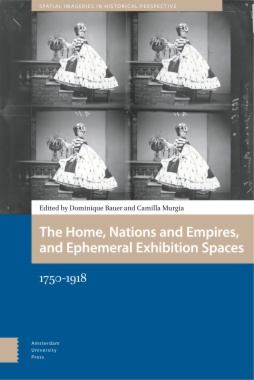This book explores ephemeral exhibition spaces between 1750 and 1918. The chapters focus on two related spaces: the domestic interior and its imagery, and exhibitions and museums that display both national/imperial identity and the otherness that lurks beyond a country’s borders. What is revealed is that the same tension operates in these private and public realms; namely, that between identification and self-projection, on the one hand, and alienation, otherness and objectification on the other. In uncovering this, the authors show that the self, the citizen/society and the other are realities that are constantly being asserted, defined and objectified. This takes place, they demonstrate, in a ceaseless dynamic of projection versus alienation, and intimacy versus distancing.
- Cover
- Table of Contents
- Introduction: Ephemeral Exhibition Spaces and the Dynamic of Historical Liminalities
- I: The Home
- 1. Panorama as Critical Restoration: Examining the Ephemeral Space of Viollet-le-Duc’s Study at La Vedette
- 2. An Ephemeral Museum of Decorative and Industrial Arts: Charle Albert’s Vlaams Huis
- 3. Expanding Interiors: Architectural Photographs of the Countess de Castiglione
- II: Bygone Nations and Empires under Construction: Political Imaginations
- 4. The Land that Never Was: Liminality of Existence and the Imaginary Spaces in the Archbishopric of Karlovci
- 5. The Theatre of Affectionate Hearts: Izabela Czartoryska’s Musée des Monuments Polonais in Puławy (1801–1831)
- 6. A Burning Mind, a Dream Space, a “Fantastic Exhibition”
- III: England and the British Empire: Civil Society,
Civil Service, and Ephemeral Exhibition Spaces
- 7. An Ephemeral Display within an Ephemeral Museum: The East India Company Contribution to the Manchester Art Treasures Exhibition of 1857
- 8. Julia Margaret Cameron’s Railway Station Exhibition: A Private Gallery in the Public Sphere
- 9. Paper Monument: The Paradoxical Space in the English Paper Peepshow of the Thames Tunnel, 1825–1843
- Index

